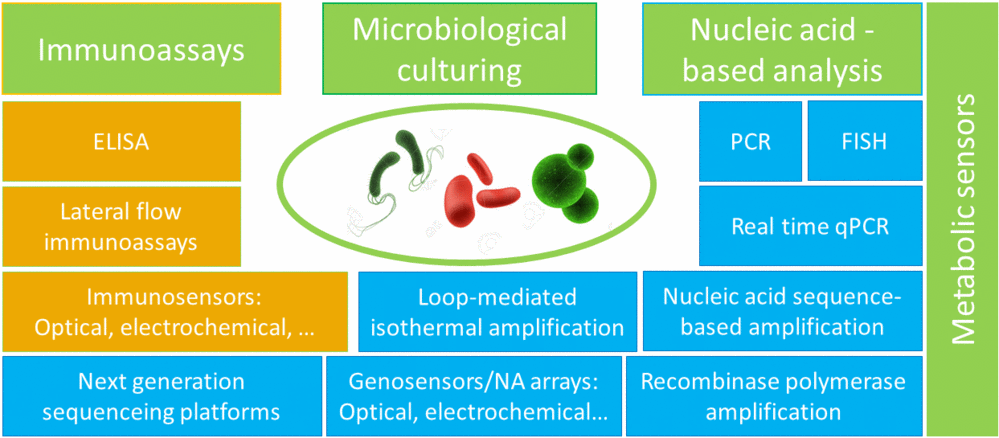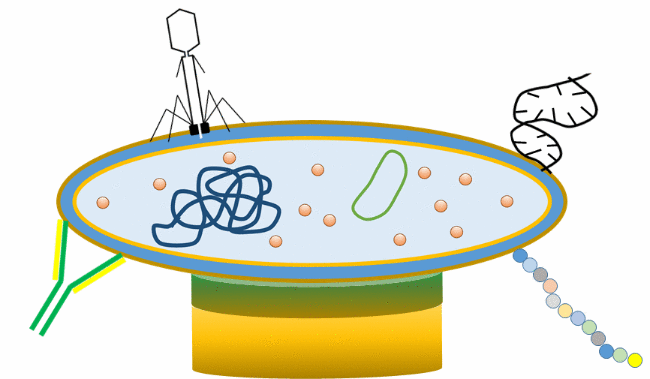- Advanced electrochemical technologies for biomedical diagnostic devices and environmental monitoring;
- Electron transport in biopolymers and its application in biosensor and bioelectronics;
- Sustainable energy and chemicals production.
European CommissionSTRIM: Scientific Training for Post-Translational Modification Detection in Cancer Screening |
Cancer remains one of the greatest challenges to the EU healthcare systems. Early detection and diagnosis dramatically increases the prospect of successful treatment and survival. Academia and the rapidly growing cancer diagnostics and biosensors sectors have an urgent need for researchers skilled in developing improved screening technologies, which can offer major opportunities to impact cancer survival. However, the development of assays with the required sensitivity, reliability and technology formats for multi-cancer early detection is only recently emerging and faces significant R&D challenges.
STRIM will train a cohort of researchers in the multi-disciplinary science, bioinformatics, technology, social, clinical and health-economic skills required to deliver comprehensive bioelectronic tools for cancer screening, tools that are fast, accurate, sensitive, and exploit advanced molecular receptors and nanobiotechnologies for detection of aberrant post-translational modifications (PTM) of proteins and nucleic acids as cutting-edge biofluid markers for early detection of cancers. Growing evidence suggests that PTM play important roles in human cancers and are likely to prove highly specific for cancer type. Focusing on both genomic and proteomic PTM biomarkers will be a game-changing strategy for improving early cancer detection rates, efficiency and population health.
Doctoral training in STRIM will encompass state-of-the art approaches for ultra-sensitive detection of PTM biomarkers as cancer screening tools by building on recent advances in electrochemiluminescence, aptamer and DNA microarrays and conducting polymer micro-structured electrodes. These techniques will reach new levels of specificity and overcome barriers to the realization of multiplexed diagnostics for enhanced cancer screening. All translational issues will be considered in harmonization with regulatory and health technology assessment and social acceptability will be screened in the population.
This project provides medical doctors with fast and accurate liquid biopsy tests for analysis of protein HER-2/neu in blood of cancer patients and cancer risk groups. HER-2/neu levels are elevated in aggressive breast and in gastro-oesophagal cancers that have poor clinical prognosis and require targeted therapies and continuous monitoring of HER-2/neu in response to the anticancer treatment. Clinical HER-2/neu analysis rely on solid tumor biopsies and is poorly suited for continuous monitoring. A liquid biopsy (diagnostics in serum samples) will then allow a non-invasive analysis of cancer state at lower cost and for faster times. HER-2/neu serum diagnostics based on a low-cost ultrasensitive bioelectronic technology will be clinically validated by correlating patients’ serum and tumor HER-2/neu profiles and related to the results of solid tumor analysis and patients’ scanning at the nuclear medicine department. Test strips will be developed for immediate use at point-of-care sites.
The COVID-19 pandemic has emphasized the need for rapid and easy-to-use diagnostic tests. Pathogens, cancer biomarkers, and small drug molecules are diagnostic relevant targets requiring rapid tests. Few commercial-relevant proof-of-principle devices exists due to immense challenges within stability and diagnostic sensitivity and specificity. Most promising are electrochemical-based biosensors exploiting aptamers as biorecognition molecules and fast electrochemical methods to achieve the needed requirements. This project develops a rapid and low-cost biosensor platform with new chemical surface modification to increase the diagnostic sensitivity and specificity. Solsten’s proprietary biosensor design (patent under preparation) enables rapid development and implementation for new diagnostic targets, while the academic partner provides the expertise in electrode interfacial design and biosensor development. The outcome of this research project will provide a foundation for a science-based biosensor technology for rapid testing of diagnostic targets in the healthcare system.
1). Development of liquid biopsy tests and point-of-care testing devices for cancer diagnosis
2). Development of strip tests for viral detection with plant viruses as a model
For more projects see here.
01.02.2021
Malecka, K.; Mikuła, E.; Ferapontova, E.E. Design Strategies for Electrochemical Aptasensors for Cancer Diagnostic Devices. Sensors 2021, 21, 736 (p. 1-41). https://doi.org/10.3390/s21030736

Binte Jamal, R.; Shipovskov, S.; Ferapontova, E.E., Electrochemical Immuno- and Aptamer-Based Assays for Bacteria: Pros and Cons over Traditional Detection Schemes, Sensors 20(19) 2020 5561 (p.1-27). https://doi.org/10.3390/s20195561

Ferapontova, E.E., Electrochemical assays for microbial analysis: How far they are from solving microbiota and microbiome challenges, Curr. Opin. Electrochem. 19 2020 153-161, https://doi.org/10.1016/j.coelec.2019.12.005

"Either write something worth reading or do something worth writing." Benjamin Franklin
"The only man who makes no mistakes is the man who never does anything." Theodore Roosevelt
"Differences underlie innovations. If you cannot be different, you cannot innovate." Prof. Adam Heller, the University of Texas at Austin, co-founder of TheraSense, now Abbott Diabetes Care
European Commission: Breaking Bad Biofilms: Innovative Analysis and Design Rules for Next-Generation Antifouling Interfaces
NUMEN: Nanotechnologies for Ultrasensitive monitoring of Microbes in the human ENvironment

CEM: Center for ElectroMicrobology
eADAM: Ultra-small electrochemical Aptasensors for specific DopAmine real-time Monitoring, EU MCSA H2O2